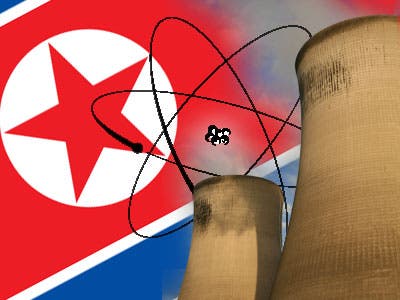
Will the US-North Korean Agreement Stop the North’s Nuclear Development?
(Japan) on 2 March 2012
by Editorial (link to original)
North Korea will suspend uranium-enriching activities at Nyongbyon and accept inspectors from the International Atomic Energy Agency. It has also said that it will freeze its nuclear weapons program and long-range ballistic missile testing.
North Korea is just beginning to organize with Kim Jong Un, the late General Secretary Kim Jong Il’s third son, as the central figure. It is a positive thing that this new government has shown so quickly that it is open to discussion about the nuclear problem.
However, there are various concerns that remain about this U.S.-North Korean agreement. First, the agreement to freeze nuclear development is contingent on “talks proceed[ing] fruitfully.” Depending on the interpretation of this phrase, nuclear development activities could restart at any time.
Furthermore, it is thought that there are many uranium-enriching facilities outside of Nyongbyon. According to the agreement, there will not be any inspections outside of Nyongbyon, and it is unclear how nuclear development, which uses extracted plutonium, will be handled. We cannot help but say that this is an agreement full of loopholes.
By playing the nuclear card, North Korea is trying to get as much aid as possible from abroad. The international community has seen this type of North Korean brinkmanship diplomacy many times. During those times, North Korea’s non-proliferation did not hold; in fact, nuclear development grew steadily faster. We cannot walk the same line as before.
America is readying itself to return to providing food aid. Setting aside basic nutritional aid, it has to carefully consider assistance for grain farmers in order to raise its leverage in this new system.
Uranium enriching activities at Nyongbyon should not be “temporarily paused,” and measures are necessary to prevent operations from restarting. America must also insist on open inspections by the IAEA.
America’s underlying desire to avoid escalating a deep crisis on the Korean peninsula is due to the pressures of a shrinking national security budget. The Americans will need to be able to deal with the tense situation with Iran and the strengthening Chinese military. They are also restraining themselves due to the presidential elections in November.
North Korea sees through this American position and is trying to get some sort of concession. We hope that Japan and South Korea cooperate even more with America and that North Korea is not just trying to get aid. The Japanese abduction issue will not progress solely on Japanese-American cooperation.
China maintains a strong influence on North Korea. I want the cooperation of China, which is a member of the six-party talks, so that this agreement can finally lead to non-proliferation.

